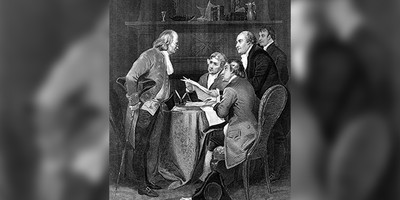I still don't understand why people take drugs. Can't they just pour themselves a nice shot of bourbon? On the other hand, as Gary S. Becker and Kevin M. Murphy argue, in a lucid piece for the Wall Street Journal's Review section, prison populations have quintupled since 1980, in large degree thanks to laws meant to decrease drug usage by prohibiting it; 50,000 Mexicans may have died since 2006 in their country's war against traffickers, and addiction has probably increased.
Becker, a Nobel laureate in economics, and Murphy, a University of Chicago colleague, argue for putting decriminalization of drugs on the table for national consideration. The federal war on drugs, which commenced in 1971, was supposed to discourage use by punishing the sale and consumption of drugs. It hasn't worked quite that way.
"[T]he harder governments push the fight," the two argue, "the higher drug prices become to compensate the greater risks. That leads to larger profits for traffickers who avoid being punished." It can likewise lead "dealers to respond with higher levels of violence and corruption." In the meantime, Becker and Murphy point out, various states have decriminalized marijuana use or softened enforcement of existing prohibitions. Barely two months ago, voters in Colorado and Washington made their own jurisdictions hospitable to the friendly consumption of a joint.
Recommended
The two economists say full decriminalization of drugs would, among other things, "lower drug prices, reduce the role of criminals in producing and selling drugs, improve many inner-city neighborhoods, [and] encourage more minority students in the U.S. to finish high school." To the Journal's question, "Have we lost the war on drugs?" 89.8 percent of readers replied, "Yes."
One isn't deeply surprised to hear it. National tides seem presently to be running in favor of abortion and gay marriage -- two more elements of the culture wars that began, contemporaneously, with the battle for the right to puff pot. Swimming against powerful tides is no politician's idea of a participatory sport. Conceivably, armed with practical (i.e., $$$$$$) reasons for decriminalizing drugs, advocates of such a policy course will prevail. We can then sit around wondering what all the fuss was about.
What it was about -- you had to have been there to remember now -- was the defense of cultural inhibitions. Sounds awful, doesn't it?
As the counterculture saw things, inhibitions -- voluntary, self-imposed restraints -- dammed up self-expression, self-realization. They dammed up a lot more than that, in truth: much of it in serious need of restraint and prevention.
The old pre-1960s culture assigned a higher role to the head than to the heart. Veneration of instincts risked the overthrow of social guardrails that inhibited bad, harmful and anti-social impulses. The drug culture that began in the '60s elevated to general popularity various practices, modes, devices, and so forth that moved instinct -- bad or good, who cared? -- to the top of the scale of values. There was a recklessness about the enterprise -- do whatever turns you on, man! -- incompatible with sober thought: which was fine with an era that had had it, frankly, with sober thought.
Drugs are very much a part of our time and culture, which is why the war on drugs looks more and more like a losing proposition. The point compellingly advanced by Becker and Murphy may win out over the next decade. If so, the drug gangs may disappear, the prisons disgorge tens of thousands. Will things in general be as good as they might have been had the culture walked a different path 40 years ago -- the path of civilized "inhibition"? Ah. We get down here to brass tacks.

























Join the conversation as a VIP Member